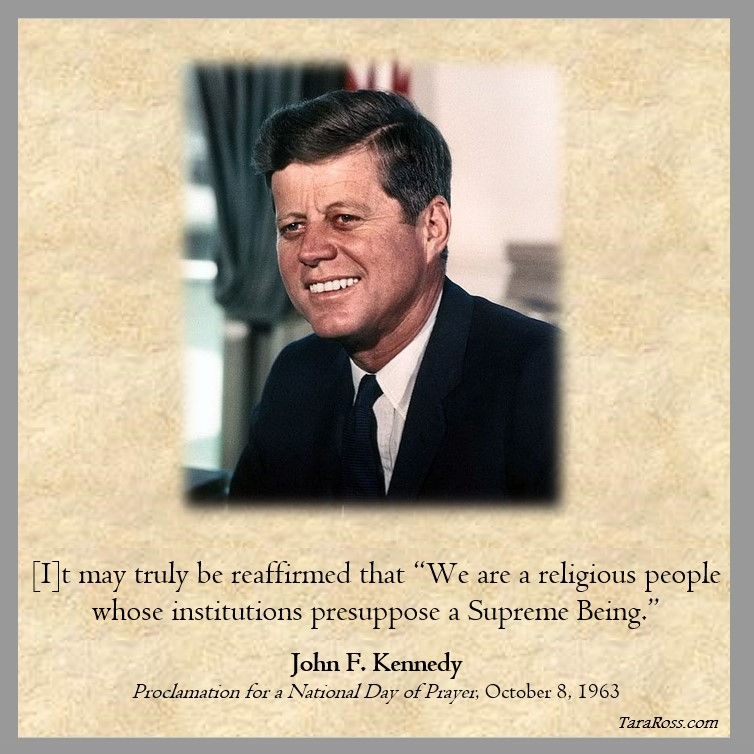On this day in 1963, John F. Kennedy issues a proclamation, calling for a National Day of Prayer.

“Our forefathers declared the independence of our Nation,” he said, “‘with a firm reliance on the protection of divine Providence.’ In that reliance, they set forth the conviction that all men are created equal and endowed by their Creator with unalienable rights to life, liberty, and the pursuit of happiness. . . . it may truly be reaffirmed that ‘We are a religious people whose institutions presuppose a Supreme Being.’”
His words give some heartburn today, but others agree wholeheartedly. Either way, it’s worth noting that many Founders held similar opinions.
John Adams, for instance, once observed that “Our Constitution was made only for a moral and religious people. It is wholly inadequate to the government of any other.” (Letter of October 11, 1798) George Washington took up a similar theme when he wrote that “Religion and Morality are the essential pillars of Civil society.” (Response to Philadelphia Clergy, March 1797).
He had already made similar statements in his Farewell Address to the nation. “Of all the dispositions and habits which lead to political prosperity,” he told Americans, “Religion and morality are indispensable supports. In vain would that man claim the tribute of Patriotism, who should labour to subvert these great Pillars of human happiness, these firmest props of the duties of Men & citizens.”
A signer of the Declaration soon wrote an essay, agreeing with Washington.
“Without [religion] there can be no virtue, and without virtue there can be no liberty,” Benjamin Rush concluded, “and liberty is the object and life of all republican governments.”
Food for thought for your day. Why have we strayed so far from these sentiments?
Comments